Photographs: Adnan Abidi/Reuters Vanita Kohli-Khandekar
In a business where credibility is the key currency, its value is eroding at an alarming rate, says Vanita Kohli-Khandekar.
The Tarun Tejpal episode is depressing. The alleged sexual assault of a junior colleague by one of India’s best-known activist-editors brings out not just Mr Tejpal’s infirmities but those of an entire industry.
For one, it shows how badly run are our mechanisms for self-regulation. More than a week after the scandal broke, the Press Council was still to react.
The processes for addressing any form of sexual assault are, largely, absent in most news media organisations.
In a profession that is a heavy employer of both men and women, and one that involves a lot of late nights and crazy hours, this is a bad idea.
But, more importantly, it shows how pathetically the whole business of news is faring in India. Tehelka reflects the state of the news business much too accurately.
...
Tehelka tarnishes the image of India's media industry
Image: Activists of the Akhil Bharatiya Vidyarthi Parishad (ABVP), linked to Bharatiya Janata Party (BJP), shout slogans during a protest against Tarun Tejpal.Photographs: Adnan Abidi/Reuters
According to news reports, the combination of investors in Tehelka, the 13-year-old magazine Mr Tejpal partly owned, has never made money.
One estimate puts the losses suffered by its investors – one of whom is a member of Parliament – at upwards of Rs 40 crore (Rs 400 million) over the last four years alone. That raises the question: why?
Globally, news is an unprofitable business unless it is bundled with entertainment or any other product. So CNN, a news channel, is part of a larger entertainment behemoth, Turner.
Similarly, SkyNews is part of BSkyB, a UK-based direct-to-home operator. Most media companies are, in fact, chary of getting into the news business. In India, there are too many standalone players in news and not enough serious investors willing to fund it.
Many of the investors coming in now want their pound of flesh. So you could keep making losses as long as you play hit man for the investor or his buddies.
...
Tehelka tarnishes the image of India's media industry
Image: Tarun TejpalPhotographs: Adnan Abidi/Reuters
This could be done by burying a story or by highlighting another. Or it could be done by providing access or influence within policy or other circles for the investor to further his business interests.
You could argue that even proprietors of established newspapers have used their brands as tools to exercise power.
The reason India has a mind-boggling 86,000-plus registered publications in a Rs 22,000-crore (Rs 220 billion) print market is that everyone wants to keep their little fiefdoms in Ranchi and Raipur or wherever they are.
So puny little brands with circulation of a few thousands keep chugging along, refusing to either sell out or shut down. Has anyone wondered how they survive in the cut-throat market for news in India?
Some peddle influence, others extort money and some burn cash from other profitable businesses, thereby destroying wealth instead of creating it.
...
Tehelka tarnishes the image of India's media industry
Photographs: Reuters
The situation in news television is worse. By some estimates, India has more than 135 news channels – the most in the world – fighting over a stagnating advertising pie. Of the five listed television news companies, only three – TV Today, Zee News and Network18 – managed to make a profit in the year ending March 2012.
Most of the unlisted ones, except perhaps MCCS (which owns ABP News and others), are making a loss. A cursory analysis of these 135 channels shows that roughly a third are owned by companies or individuals using it as a political vehicle, a tool of influence, favour or threat.
The companies that want to build a regular news business end up competing with those that have money to burn. This has pushed everyone into a race for ratings and, therefore, to the bottom in terms of journalistic standards.
The meaning of the words “news media” and “journalism” is now tainted with tabloidisation and sleaze. In a business where credibility is the key currency, its value is eroding at an alarming rate.
...
Tehelka tarnishes the image of India's media industry
Photographs: Reuters
And the good, clean, media houses – a majority – have done little to arrest this slide.
Most are members of the Press Council, but they did nothing when the paid news scandal – in which several leading newspapers were accused of taking money to cover candidates in the 2009 general election – broke.
According to Election Commission data, the instances of paid news, in fact, went up in 2012. Why are the “responsible” media houses not standing up for the business and profession?
Why are they not pushing for a framework that keeps non-serious investors away, one that makes training and basic qualifications mandatory, among the dozens of other things that could be done to clean up the news media?
Without these measures, there is every possibility of more bust-ups as the dodgy doings of spurious news media firms are revealed.
...
Tehelka tarnishes the image of India's media industry
Photographs: Adnan Abidi/Reuters
These could lead to thousands of job losses a la the Tara group of channels from the infamous Saradha Group in Kolkata.
Tehelka’s mess came out because of the sexual assault allegations against its editor. The others might come out for other reasons – a bounced cheque, a string of cover-ups, or a sting gone wrong.
Such episodes give any government a nice stick to regulate news media more tightly. More importantly, they build public opinion for more regulation. Tehelka is a huge punch in the face of the news industry, particularly because it came from one of its more moralistic brands.
A few more episodes like Tehelka, and the whole idea that a free press and democracy go hand in hand will be irreparably damaged.

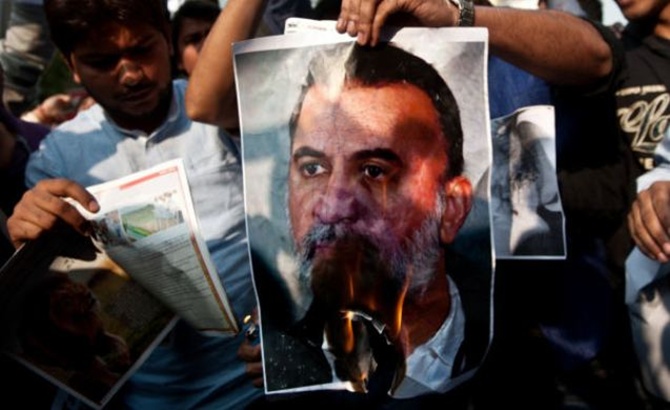
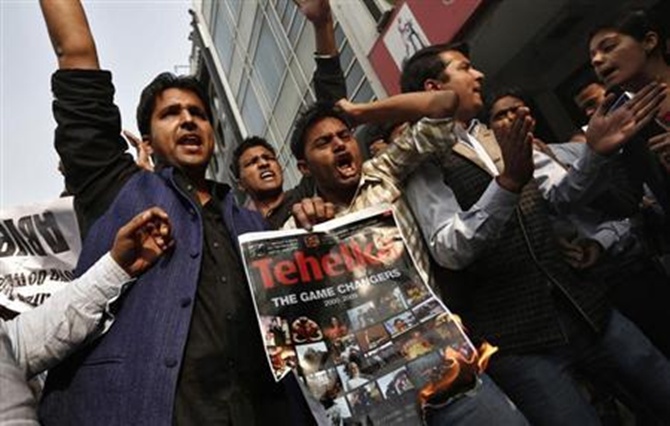
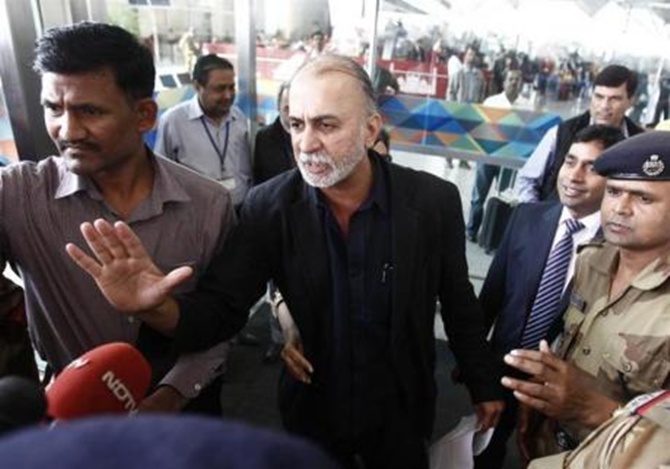
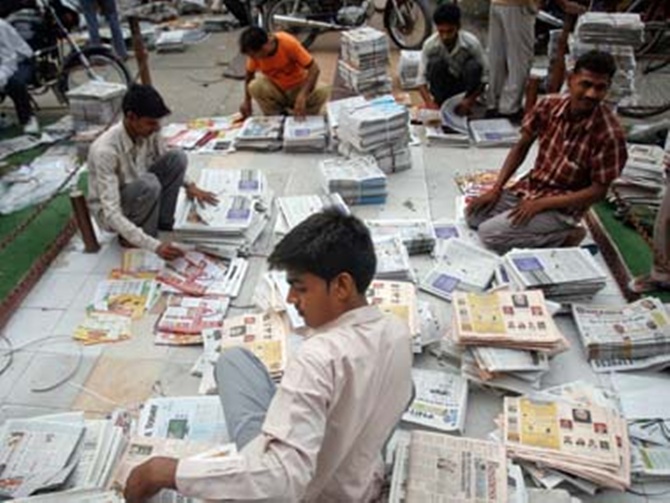
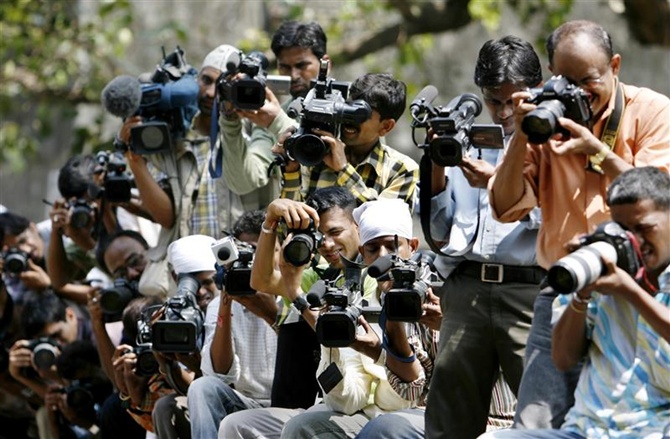
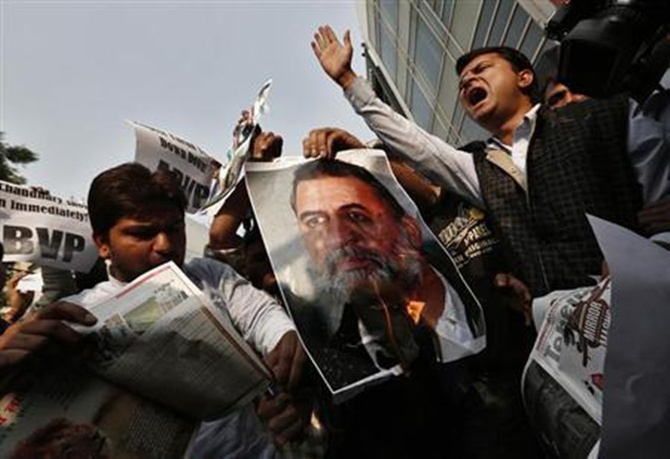

article